This is the first edition of Progressive Realism, a foreign policy newsletter where you will find an in-depth look at my approach to the UK’s foreign affairs, and how it is shaped by the principle of progressive realism.
I have travelled to Kyiv several times since the war began. Circumstances today make the journey from elsewhere in Europe a lot longer and more tiring. I always savour the reviving cup of tea as you approach Kyiv. Black tea freshly brewed in a samovar, served with lemon and sugar.
Last week, I drank my tea alongside my good friend and American counterpart, Tony Blinken. Incredibly, this was the first joint visit of this kind to anywhere in the world for well over a decade.
Diplomacy is all about connecting with people. Visiting Kyiv together was a great way to bond and stay strategically aligned, as we approach the third winter of Putin’s illegal war.
Tony and I are good friends, who share a love of music and have a similar outlook on the world of today. We are united in our determination to stand by Ukraine, and I was proud to make this visit together.
I met firefighters and first responders in Kyiv, seeing fire engines Britain had donated to them. Night after night, they prepare for another round of Russian strikes. When the bombs start falling, they are the ones who run in to rescue and protect their compatriots.
I was inspired by their incredible bravery. But I was particularly moved to see in Kyivans the same Blitz spirit which Londoners displayed when resisting fascism decades ago.
I have met countless Londoners from that heroic generation. Their resistance, their endurance, their refusal to give in – this was a hinge moment in the twentieth century. I profoundly believe that future generations will say the same about Ukrainian resistance today.
Tony and I also had a chance to walk a little around Kyiv.
The war is never absent – at one stage, we heard air sirens begin to blare, but fortunately did not need to seek shelter. But despite this, Kyivans’ enduring spirit was on display as they went about their daily lives – a mix a British stiff upper lip, American-style optimism, and a strong sense of Ukrainian national pride.
Putin has been cynically attacking the Ukrainian energy grid over the past few months. This will make the coming winter very hard for lots of Ukrainians. But there is a steady buzz as you walk around Kyiv, a city which has long since left its dreary Soviet heritage behind. I couldn’t help but be buoyed up by it.
Of course, President Zelenskyy is an energetic leader incarnate. I am confident that when I look back at the end of my career, he will be one of the most impressive people I’ve met in the course of my life. His fortitude, his command of the situation, his constant drive to champion Ukraine’s cause – it’s immense.
Tony and I also spoke at an international meeting the President chaired to support the liberation of Crimea.
It is ten years since Putin illegally annexed Crimea. But also eighty years since Stalin deported the Crimean Tatars en masse. And two hundred and forty years since Catherine the Great violated a peace treaty with the Ottomans and robbed the Crimean Khanate of its independence.
These anniversaries made it clear – Putin’s full-scale invasion in 2022 did not come out of nowhere. It was part of a long history of Russian imperialism in Ukraine, including in Crimea.
I use the word imperialism advisedly. My ancestors were once taken at the barrel of a gun from the continent of Africa. Just over one hundred years ago, some of them rose up in the Demerara slave rebellion. I feel personally about that battle against imperialism.
But that was several hundred years ago. The world has changed, mainly for the better. Yet here we are, in 2024, facing down the same form of oppression.
The reports I heard of life in Crimea made that absolutely clear. In 1991, the people of Crimea chose in a free vote for Ukraine to be independent. This month, Putin tried to legitimise his control over the peninsula in another round of local “elections” which made a mockery of democracy.
Meanwhile, fifty thousand Ukrainians from Crimea have fled to other parts of the country. Many who remained have been illegally conscripted into the Russian army. Those brave enough to stay and express dissent risk arbitrary detention, enforced disappearances, even torture, with reports of mock executions and electric shocks.
Vladimir Putin claims he is seeking to ‘liberate’ Ukrainian civilians. Yet his treatment of them in Crimea leaves no doubt that it’s those under the Russian yoke who need liberation. Liberation from twenty-first century imperial oppression.
I am not the first to draw a line between Putin’s actions today and Moscow’s imperial past.
As the historian Serhii Plokhy explains, Ukraine is central to Putin’s world view precisely because, as the largest of the Soviet republics after Russia, without it the notion of a Eurasian pole in contemporary geopolitics falls apart.
I know all too well from my own experience how difficult some in Britain have found it to come to terms with its colonial past. But I remain proud to represent a country which is trying to do so. A country where someone with my background is Foreign Secretary. A country where they can open conversations about the legacy of such a history.
As I left Ukraine, I could not help but reflect on how Putin’s imperialist actions are having the opposite effect.
In Kyiv, people take pride in their Ukrainian identity. The desire to remain close to the rest of Europe was clear for all to see. And with the opening of EU accession negotiations, this relationship is growing ever stronger.
The same effect is notable across Russia’s neighbours. The states of Central Asia look increasingly east and south. Azerbaijan has been able to liberate territory it lost in the early 1990s. Georgia and Moldova are engaging with NATO and EU.
Only a few fragile regimes like Belarus, DPRK and Iran still align with Moscow. Even in the twenty-first century, Tsardom has its limits.
Particularly in an age of multipolarity. Countries, big and small, want to make their own choices.
Putin does not believe Ukraine and other countries in the region should get a choice.
In the nineteenth century, many European empires denied other countries the chance to make their own choices. Over the twentieth century, this attitude took time to lose its hold in Whitehall.
But in the twenty-first century, I agree with my progressive colleague Penny Wong, who said in a speech in London last year, “we need to offer countries choices”. That is our goal all over the world.
This is a progressive end. But as this Substack will explore, we need to pursue this with realist means.
Shortly after returning from Kyiv, I was off to Washington with the Prime Minister. Together with President Biden, we discussed the war in Ukraine and how best we support them.
I want to use my Substack to offer an insight into visits like these. I cannot promise to write after every single one – the pace is too great. But where I have the time to share some reflections, I will.
I hope you will join me, as I work to reconnect Britain with the world.
Further reading and watching:
Defence Secretary oral statement on war in Ukraine, 10 September 2024 – GOV.UK (www.gov.uk)
British Ambassador to Kyiv’s X account – @MartinHarrisOBE
The Fourth Summit of the Crimea Platform (youtube.com)
‘An enduring partnership in an era of change’ – Australian Foreign Ministry (foreignminister.gov.au)





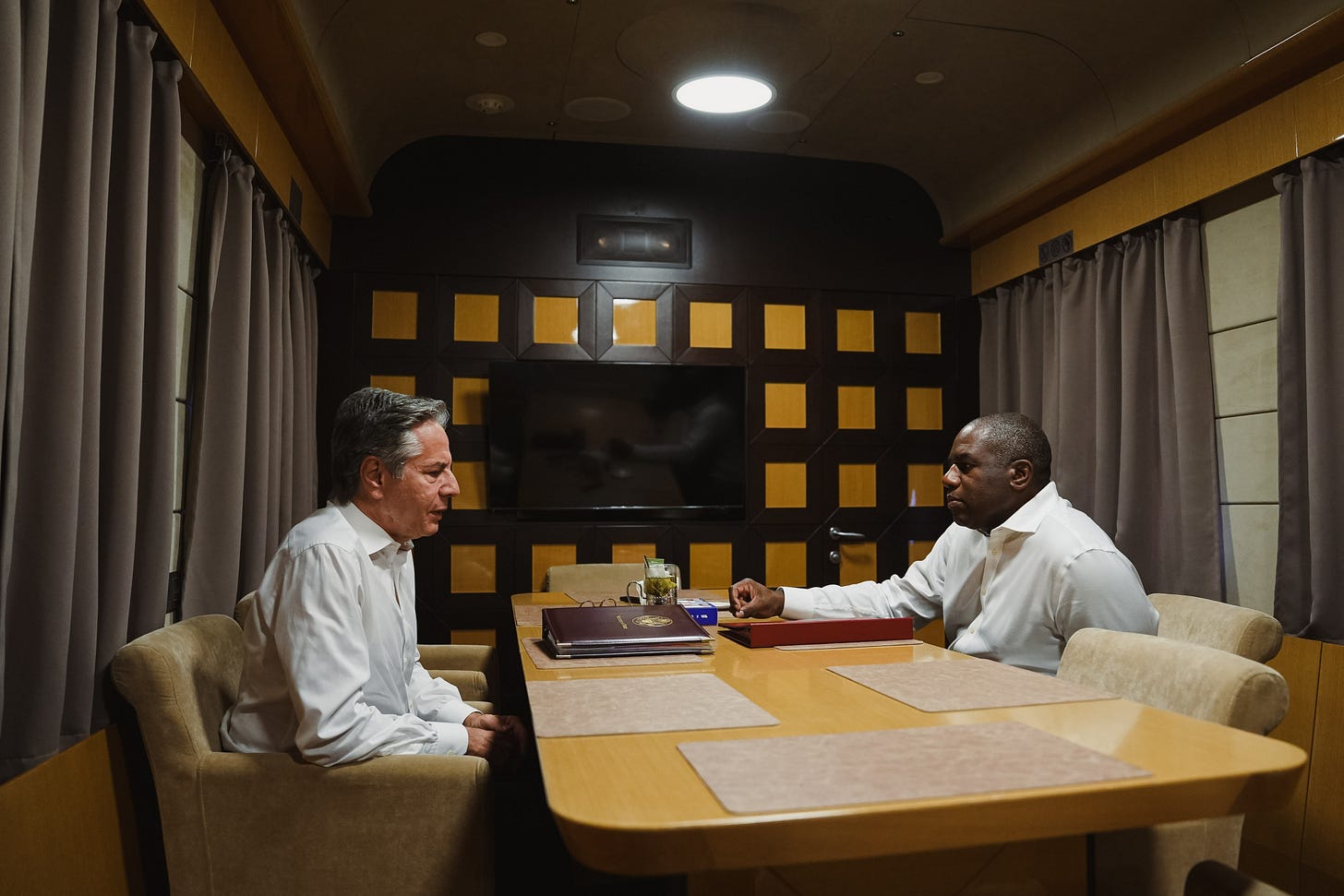
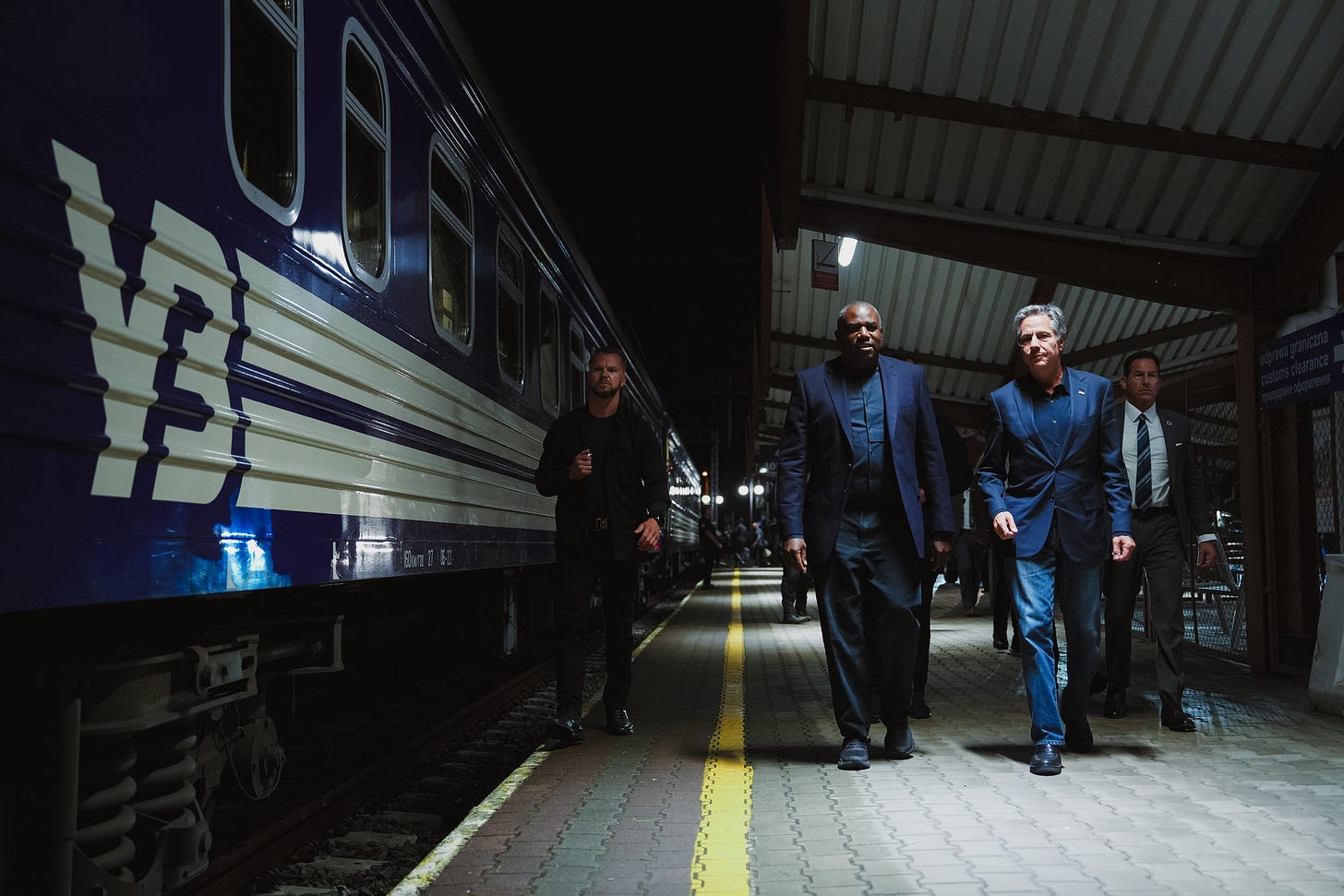
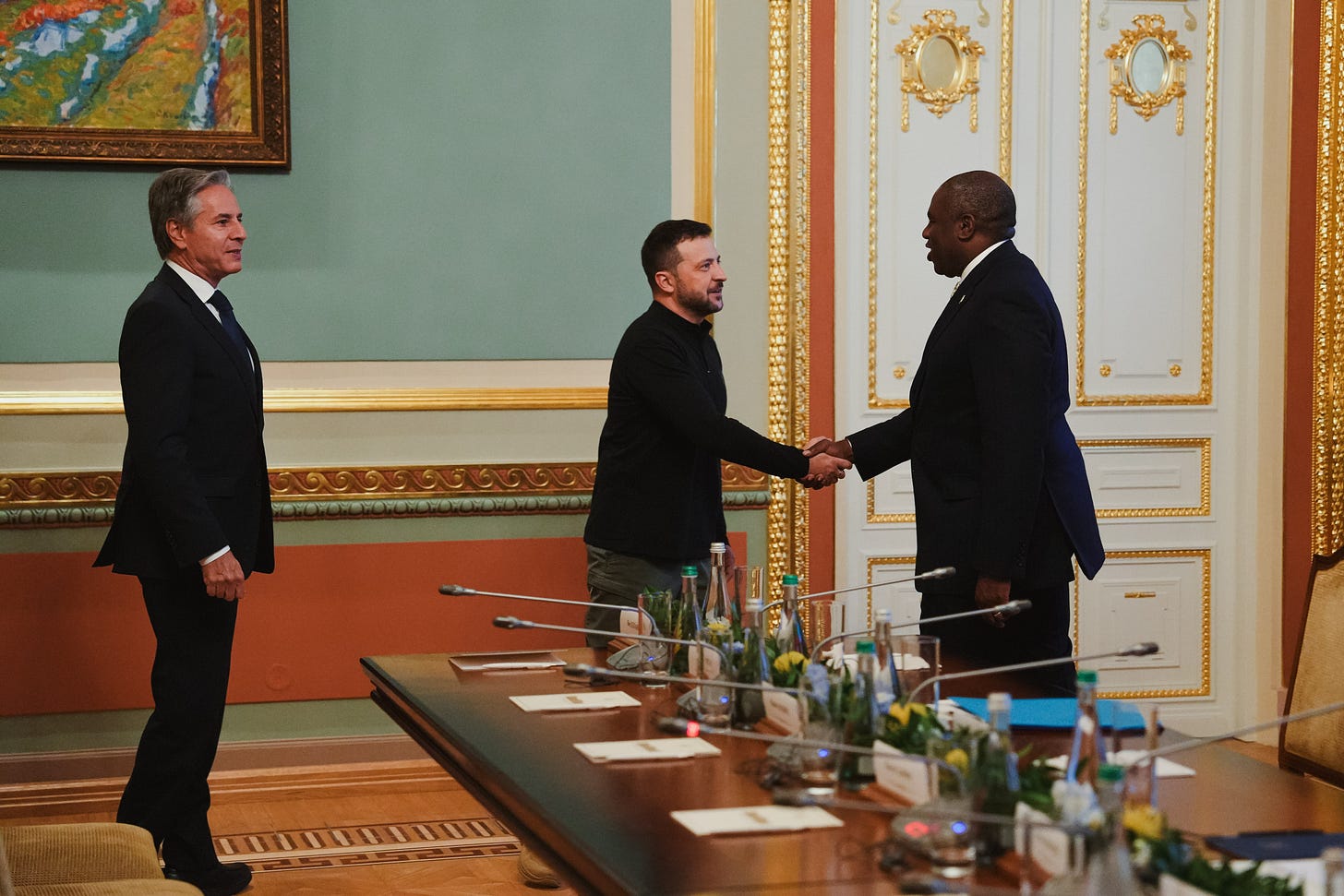
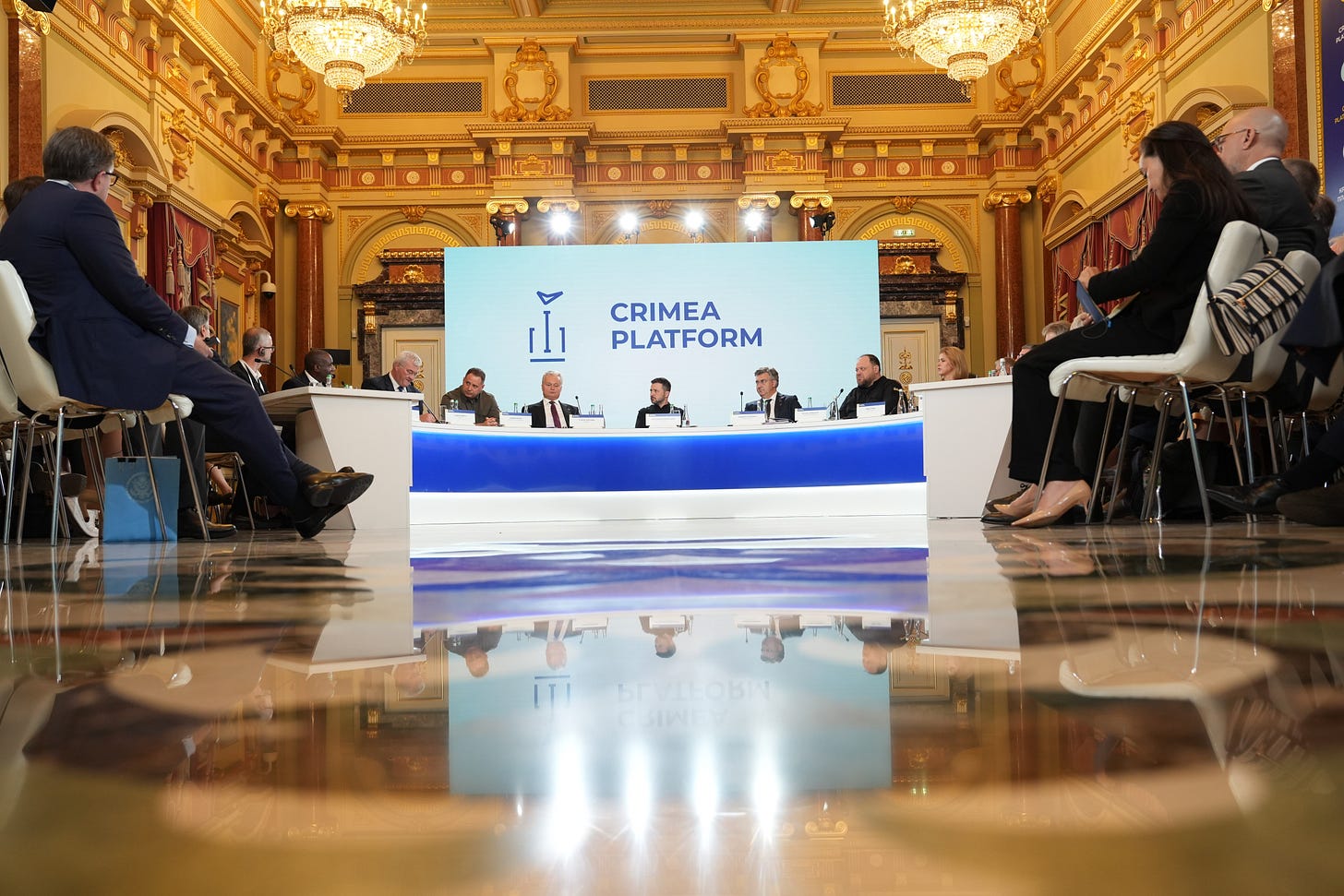
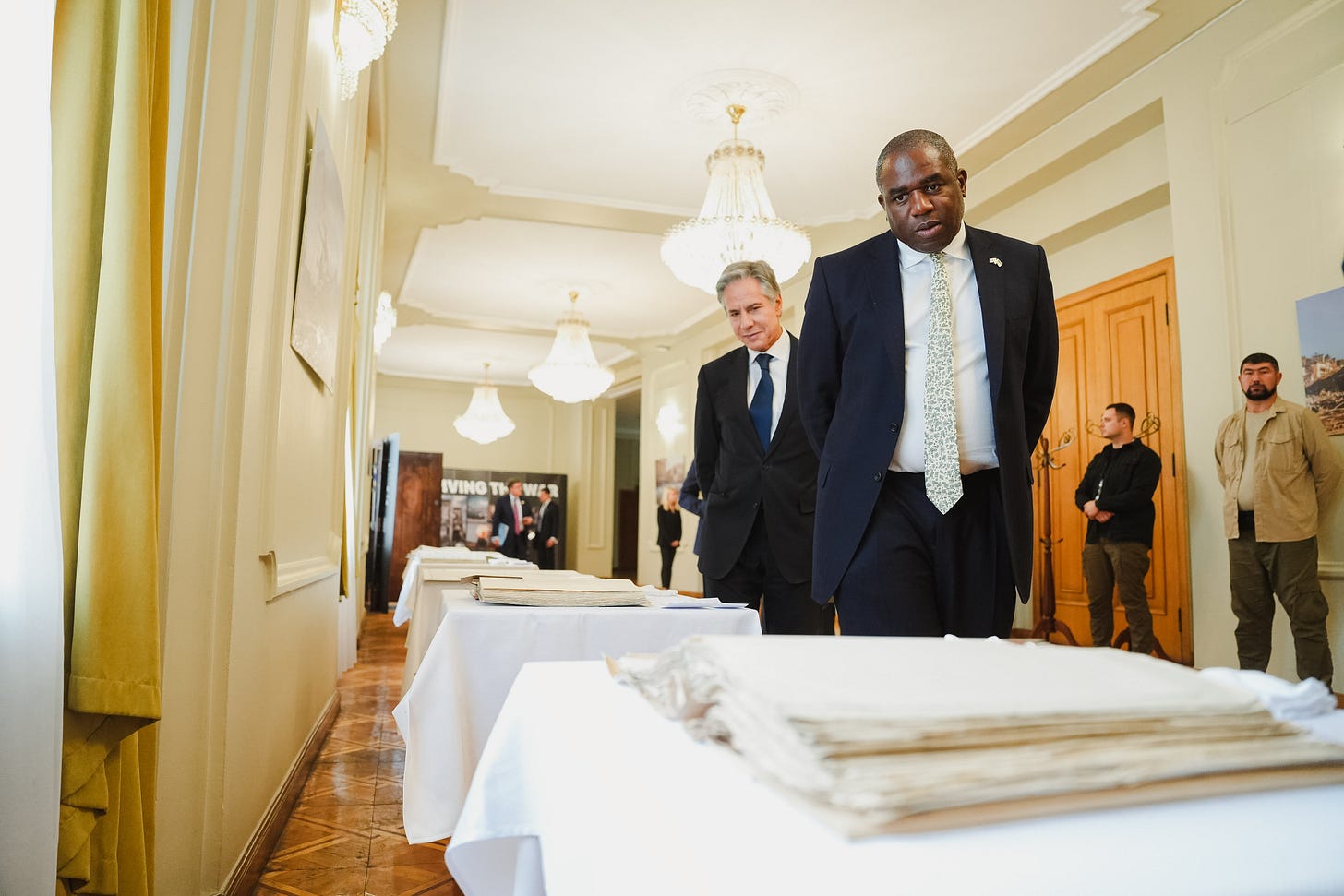
"Azerbaijan has been able to liberate territory it lost in the early 1990s."
What the actual fuck?
This essay will now be dragged out by every two-bit thug on the planet whenever the UK complains about ethnic cleansing. Thanks a lot.
> Azerbaijan has been able to liberate territory it lost in the early 1990s.
How much did Aliyev pay you? How much does it cost these days to get the British Foreign Secretary to abet ethnic cleansing by murderous dictators? Asking for a friend